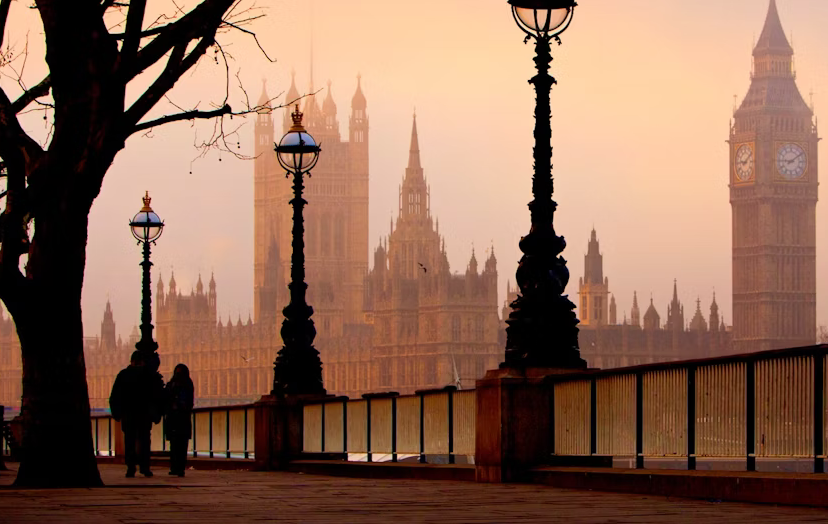In late July, Amnesty International released a new report calling attention to the ethnic cleansing of Muslim minority communities in the Central African Republic (CAR). Forms of religious persecution described in the report include restrictions on movement, bans on prayer and other practices, the destruction of mosques, and forced conversion to Christianity. This week, Cornerstone asks contributors to describe the status of religion and religious freedom in the CAR prior to this ethnic cleansing.
By: Engy Abdelkader
Recently, the plight of refugees seeking safe haven in Europe has dominated media headlines and weighed heavily on our collective consciences. While many of these beleaguered souls have fled war-torn Syria, many other refugees around the world come from Africa, including the Central African Republic (CAR) where they have survived ethnic cleansing. Their stories may be lesser known but are equally significant.
According to a recent Amnesty International report, “Erased Identity: Muslims in Ethnically Cleansed Areas of the Central African Republic,” many towns previously bustling with largely Muslim inhabitants are now empty. Since 2014, the armed anti-Balaka militia has expelled tens of thousands of Muslims; destroyed or otherwise damaged more than 400 mosques; forced Muslims to convert to Christianity; prohibited Muslim religious attire and prayer rituals; frightened Muslims from observing Ramadan and religious holidays; and has otherwise rendered the Islamic faith and Muslim community invisible.
The report notes that violence initially erupted following a 2013 coup d’état by allied rebel factions, comprised mostly of Muslims. The Seleka rebels initially undertook an attack in late 2012 but signed a peace agreement in January 2013. Violent conflict resumed in March, however, after they claimed the government failed to fulfill its commitments. The Seleka assumed power in March 2013 and former CAR President Francois Bozize fled.
CAR is no stranger to political turmoil, however.
Since its independence from France in 1960, the country has previously experienced government takeovers on a rather regular basis—including in 1966, 1979, 1981, and 2003—although never by Muslims.
Similarly, anti-Muslim sentiment is not a new phenomenon in CAR where Christians comprise approximately 80 percent of the population. Muslims long suffered from social stigma, political disempowerment, and socioeconomic inequalities leading to their status as second-class citizens.
Historically, Christians have dominated CAR politics. And, the 2013 coup brought the first Muslim to lead the impoverished and politically volatile country. While the rebel Seleka forces expressed an alleged desire to advance the country’s best interests, a narrative soon emerged that they actually intended to spread Islam throughout CAR.
Manipulated by such messages, the largely Christian anti-Balaka militias emerged. They formed while former CAR President Bozize was still in power to defend their communities from attacks. They soon began to fight the Seleka with the assistance of Bozize loyalists affiliated with the government’s armed forces. In time, they began to exterminate the perceived Muslim threat to their religious, political, and social dominance.
To be sure, the Seleka also committed abuses including extrajudicial killings, lootings, and torture—crimes for which they should be held accountable in accordance with the rule of law.
Still, the armed anti-Balaka militias undertook reprisals against the Muslim civilian population, not merely the Seleka or ex-Seleka rebels responsible for abuses. The vigilante group targeted and slaughtered all Muslims, imputing a political opinion and collective guilt to an entire faith community for the actions of a few of its members.
No one was spared. Ethnic cleansing claimed the innocent lives of women, children, the disabled and elderly alike, as well as male non-combatants.
Notwithstanding the 2014 resignation of then-president Michel Djotodia, official dissolution of the Seleka, installation of a new interim government, presence of international peacekeepers, and open investigation by the International Criminal Court into crimes committed by all parties (Muslims and Christians) since 2012, Muslims in CAR continue to suffer.
According to the recent Amnesty report, those who remain cannot practice or manifest their faith beliefs in public, in violation of international human rights law. The briefing explains,
“To the extent that their presence is tolerated by anti-Balaka militia, they cannot openly display their Muslim identity or belief in Islam. They are barred from praying (except secretly); they cannot wear traditional Muslim clothing such as djellabas (boubous), and they cannot rebuild their mosques.”
The armed anti-Balaka militias are forcing other Muslims, whom they have allowed to remain due to their mothers’ Christian religious identity, to convert under threat of death.
Since the publication of Amnesty International’s report in July, there has been at least one notable development. Earlier this month, the UN announced a “weapons-free zone” to help facilitate the free movement and personal security of civilians.
More than 800,000 people are displaced from their homes due to the violence that has transpired. The Muslims who remain are extremely vulnerable.
Engy Abdelkader is faculty at Georgetown University’s Edmund A. Walsh School of Foreign Service, where she teaches courses on international terrorism and human rights as well as civil liberties and national security.
This piece was originally authored on September 14, 2015 for the Religious Freedom Project at Georgetown’s Berkley Center for Religion, Peace, and World Affairs.
THE RFI BLOG

Religious Freedom Is Back on the UK’s Agenda

Be More Faithful, Become More Resilient: An Invitation to Religious Institutions

How Soccer Reveals Different Meanings Of ‘Secular’ In France And The US

RFI’s Ismail Royer Meets with Delegation from India

Protecting the Unborn, Mothers, and Medical Ethics: The Stakes of Arkansas’ Amendment
CORNERSTONE FORUM

Public Bioethics & the Failure of Expressive Individualism

Religious Liberty in American Higher Education

Scotland’s Kate Forbes and the March of Secularism

70 Years of Religious Freedom in Sweden: Prospects and Challenges


